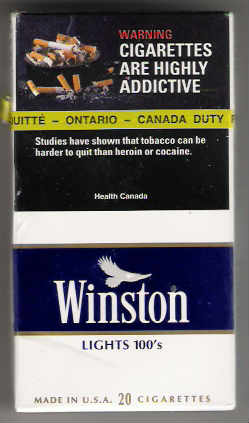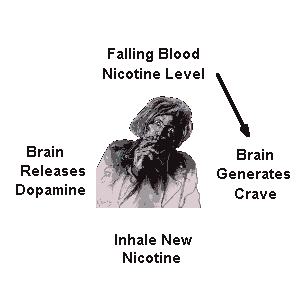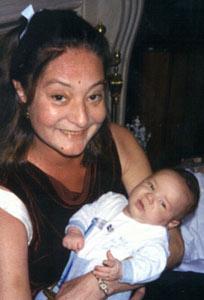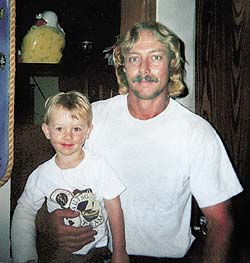
Freedom from Nicotine
A free New Year's quitting program
Sunday, December 30, 2007, 2:30 to 4:30pm
Charleston County Main Library
68 Calhoun Street, Charleston, South Carolina
"Freedom from Nicotine" Seminar
Think about it, what meaningful learning takes place when we slap on a nicotine patch, chew gum, swallow a pill or get hypnotized? Knowledge is a quitting method and the mind our most powerful quitting tool yet, sadly, far too many smokers never put the two together. Imagine fully understanding the recovery process and no longer being afraid. Imagine actually being excited about it and seeing each crave episode as a chance to extinguish another smoking cue and reclaim another slice of life.
But just how valuable can a quitting seminar be if totally free? My name is John R. Polito and I am a former 30-year, 3 pack-a-day smoker. For three solid decades, fighting in ignorance and darkness, I battled to break free yet always fell flat on my face. And then it happened. The Internet arrived and with it the chance to connect worldwide with real quitting experts, folks who had devoted their entire lives, full time, to teaching us how to quit and stay quit. Since 1999, as editor of WhyQuit, I've shared the lessons that have been shared with me. Just as they reached out to me, I dream of sharing their gifts with you.
New Year's is by far the biggest quitting time of the year. But for me, it always quickly turned into a quitting nightmare. Looking back, it clearly didn't have to be that way. Having presented quitting seminars since 2001, primarily three years of bi-monthly seminars at the College of Charleston, in 2005 I decided to present a free New Year's Eve quitting seminar, to share the insights that had been shared with me.

Drug addiction is about living a lie. It's about the mind's priorities teacher being taken hostage by an external chemical, and quickly yet falsely convincing us that this chemical gives us our edge, helps us cope, is core to our very being and that life without it would be utterly horrible. The real neuro-chemical "you" lies buried and forgotten beneath a large pile of the most powerful 3-D memories the mind is capable of generating, nicotine induced dopamine "aaah" memories. Digging out and reclaiming each aspect of life can be a wonderful experience, made so by understanding what's happening, why it happens, and how your journey home leads to a mind that again goes entire days without once thinking about wanting to use nicotine.
On this page are pictures of Bryan and Noni. The CDC tells us that roughly half of all South Carolina adult smokers are losing an average of 15.3 years of life, with one-quarter dying in middle-age (35-54). It isn't that Bryan and Noni didn't want to quit but that they never learned how. But had their captive minds found and read a page such as this, it is highly likely that the depth of their dependency would have been so great that they would have quickly found their mind inventing rationalizations as to why they shouldn't, couldn't and wouldn't attend.
Inventing rationalizations to explain the thinking mind's endless series of surrenders to a chemically captive compulsive mind, is why tobacco's annual worldwide death toll is greater than the entire population of our state. "Too stressful right now," "other plans," "a magic cure will be invented soon," "I already know this stuff," "I'll eventually figure this out on my own," "I have to work that Sunday afternoon," you are likely now witnessing the depth of your addiction at work. Nicotine dependency is as permanent and real as alcoholism and frighteningly similar to methamphetamine addiction.

Imagine residing inside a mind so sick and so ill that, to date, it has been willing to trade 5,584 sunrises, and life itself, for one chemical - nicotine. Imagine knowing the likely cause of death that will be printed on your death certificate -- "smoking" -- yet, like Bryan and Noni, doing little or nothing to end your own senseless and gradual self-destruction.
It is normal to be afraid of both failure and success but don't let fear keep you captive and in darkness. Knowledge, insight and new skills can reduce or even shed those fears. The long forgotten person buried beneath that pile of nicotine "aaah" memories deserves a second chance ad freedom is their birthright and it's time to come home.
We have absolutely nothing to sell you, and actually refuse donations. You can come to the seminar yet remain anonymous. You won't be called upon. There are no forms to fill out. No one will take away your cigarettes, try to make you feel badly or tell you to quit. You will do so when you are ready. It is my hope to have the honor of helping prepare you to succeed, when your chosen day at last arrives.
About the Program
The program is free and open to all who are dependent upon nicotine regardless of the manner delivered into the bloodstream. Smokers, smokeless tobacco users and those hooked on NRT products are invited to join us and bring along that key supporter.

Seminar Content: The onset of true chemical dependency is explored as nicotine imitated acetylcholine in exerting control over the flow of more than 200 neurochemicals, including select dopamine (reward), serotonin (mood) and adrenaline (stimulation) pathways. You'll discover how the brain defended against a flood of nicotine by growing millions of extra receptors and desensitizing critical brain pathways. You will witness smokings impact upon every living cell in the body and at last understand why more smokers die of circulatory disease than cancer. You'll learn how to cope with and diminish the anxieties that can occur during the re-sensitization process.
You will receive a detailed road map of the timing and sequencing of both chemical withdrawal and psychological recovery, while exploring critical recovery topics such as crave episode frequency and duration, coping techniques, time distortion, blood sugar stabilization, the nicotine-caffeine interaction, nicotine-alcohol interactions, and overcoming the emotional loss. Conscious denial rationalizations, minimizations and blame transference are exposed, and weak quitting motivations are recast into sustainable motives.


